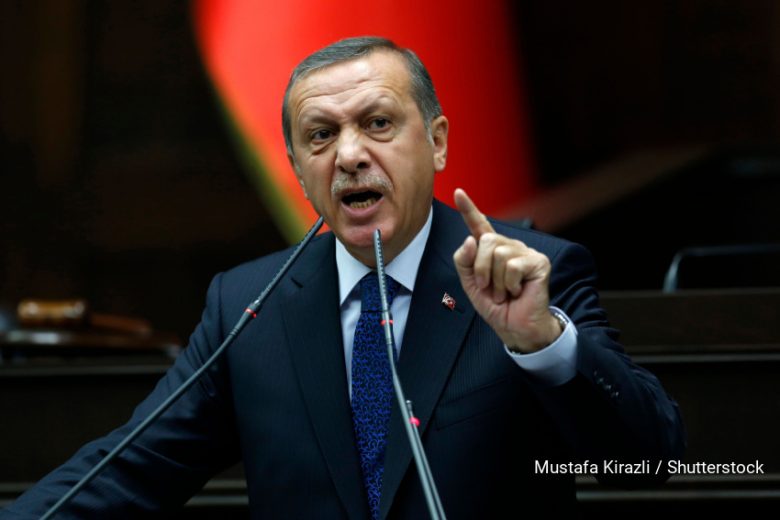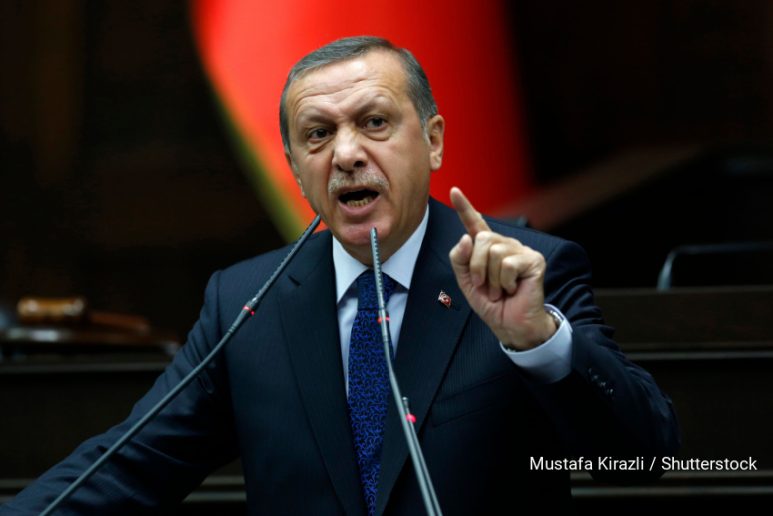By Kaan Göktaş
Türkiye’s most critical election in recent history is less than a week away. After 21 years of authoritarian one-man rule, Recep Tayyip is very close to losing the elections. Recent polls suggest that opposition leader Kılıçdaroğlu is currently leading the race by a small margin. While Erdoğan accuses the opposition of provocations, the race has been marred by hateful rhetoric. One of the targets of such rhetoric, has been Türkiye’s LGBT community. According to Human Rights Watch ‘The Erdoğan government demonstrated increasing readiness to endorse anti-lesbian, gay, bisexual, and transgender (LGBT) hate speech fomenting societal polarization in the year before 2023 presidential and parliamentary elections.’
Anti-LGBT hatred in Türkiye is not something new and the country has been slammed by human rights organisations for years. When last summer Turkish authorities banned the Istanbul Pride for the fifth year in a row Human Rights Watch said:

“The Turkish government’s crackdown on Istanbul Pride is the latest in a brutal campaign against LGBT rights activism and freedom of expression.”
“Turkish authorities have a responsibility to protect LGBT people and journalists alike, but instead the authorities have acted with aggression and cruelty.”
For Turkish authorities, anything related to the LGBT movement is against the nation. Last December the Turkish Culture Ministry demanded its funding back from the independent film Burning Days (Kurak Günler) which is characterized as ‘LGBT propaganda’.
When the Turkish government announced its withdrawal from the Istanbul Convention which protects women’s rights, in 2021, they claimed that the convention threatens ‘family values’ and normalizes homosexuality’. Thus it is no surprise that LGBT issues have been weaponized during the electoral campaigns and media debates.
The Workers’ Party of Türkiye (TİP), a socialist party in the opposition bloc, nominated a total of 3 LGBTIQA+ individuals, including the only transgender candidate. The Republican People’s Party (CHP), the nationalist and Kemalist Good Party (Iyi Parti) and the left wing, pro minority People’s Democratic Party (HDP) announced their support to the LGBT community. For Erdoğan, these political announcements mean that he found the enemy he was looking for.
During a rally in Istanbul on 7 May, the Turkish President accused the opposition as ‘pro-LGBT’ and said that AKP and other parties of his coalition will never be pro-LGBT. ‘We will bury those pro-LGBT in the ballot box,’ he exclaimed. During a rally in Izmir he said: ‘the family institution is strong, no LGBT people can come from this nation’.
Such rhetoric, however, is not new as Erdoğan and his supported have employed anti-LGBT sentiment in the past. .
First, the current government’s Interior Minister Süleyman Soylu started making anti-LGBT speeches at election rallies.In one of his speeches, Soylu described LGBT rights as terrorist propaganda and said that ‘There is cultural terrorism. The propaganda of a terrorist organization, which tries to make people forget their values, their religion, unity, parental love and family loyalty’.
The opposition has responded to anti-LGBT rhetoric; however, it seems that they have also used the same or similar rhetoric in order to attack AKP’s coalition and supporters. For example, Istanbul’s mayor Ekrem İmamoğlu, a very popular political figure in Türkiye’s political scene, said that Soylu is obsessed with sexuality and said ‘there is a strange subconscious’ alluding that Soylu is a homosexual.
It is noteworthy that in these discourses, being an LGBT person is openly stated as something reprehensible, respecting the LGBT movement and LGBT rights, and promising freedom and equality to LGBT people is criminalized, while the opposition “accuses” the other side of the same thing in response.
What was striking in all these debates was that the opposition failed to develop a response to such discourse in the context of rights and freedoms, and failed to defend the LGBT movement boldly and loudly enough. What the opposition has done is to weaponize such rhetoric and use it against Ergogan’s coalition.
In other words the opposition has adopted an attitude that reinforces the discriminatory and hateful language.
Journalist Yıldız Tar, one of the prominent figures of the LGBTIQA+ movement, characterized these LGBT-based debates between the ruling party and the opposition as a “contest of masculinity“.
Kaos GL, one of the largest LGBT organisations in Türkiye, has been monitoring anti-LGBT incidents during the electoral period. For April, it monitored 15 incidents one of which was President Erdoğan’s participation in the Election Special Program with the President which was broadcast on ATV channels. During that programme Erdoğan described the LGBT community as a perverted lifestyle. In interviews with Kanal D and CNN he stressed that his coalition ‘will not allow deviant movements such as the LGBT to exist.’
It is more than clear that the current political climate in Türkiye is heated. The LGBT community and their livelihoods have been weaponised by both sides. While the media could have helped to prevent such rhetoric from being spread and weaponised, the fact that they are under the control of the authorities prevents journalists from serving the people’s interests. Instead, they widely reinforce and spread hate speech.
Photo Credits: Mustafa Kirazli / Shutterstock

